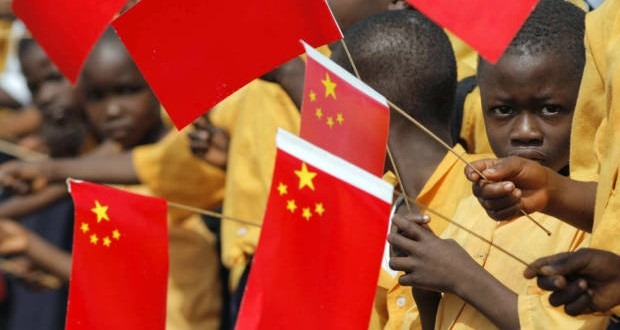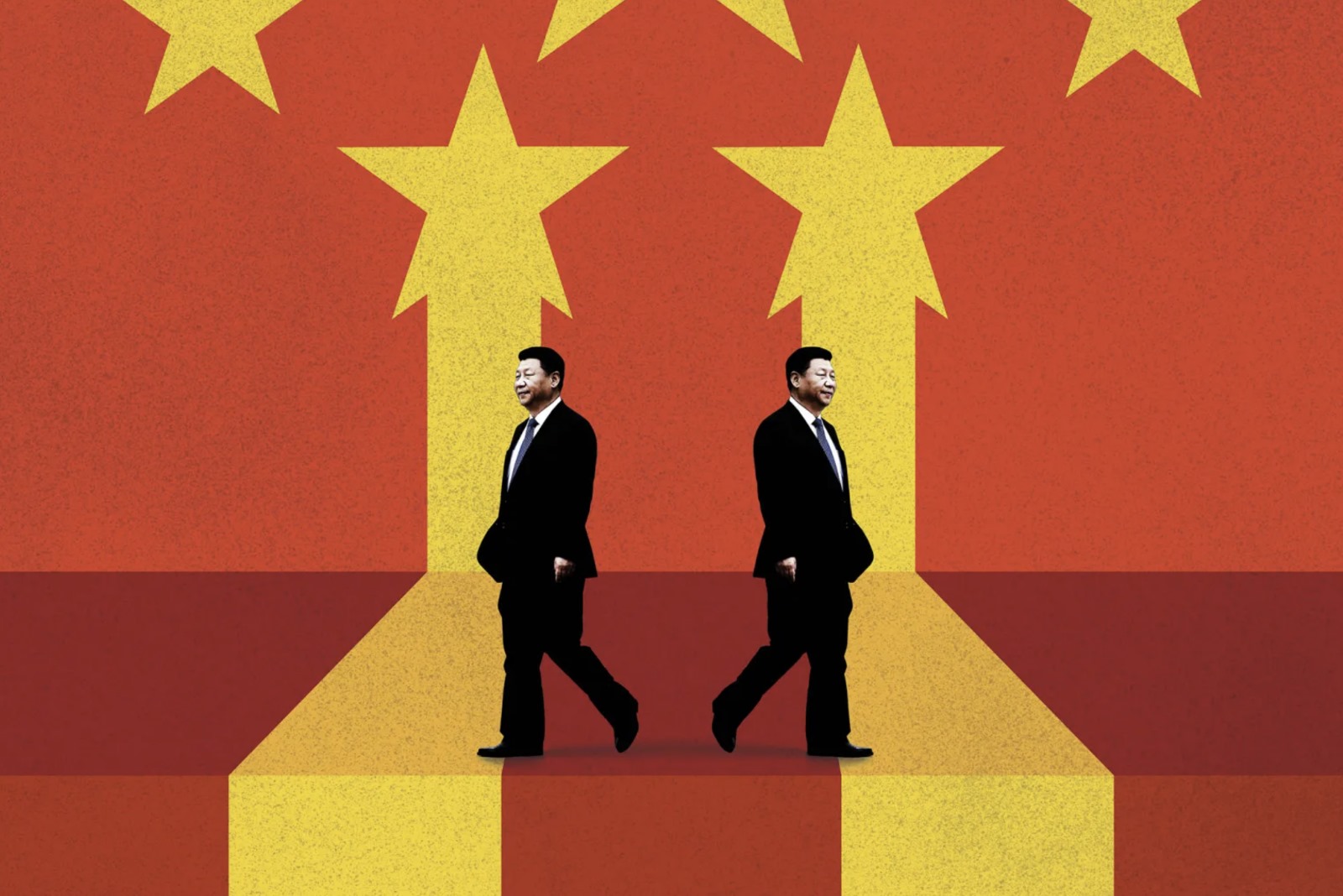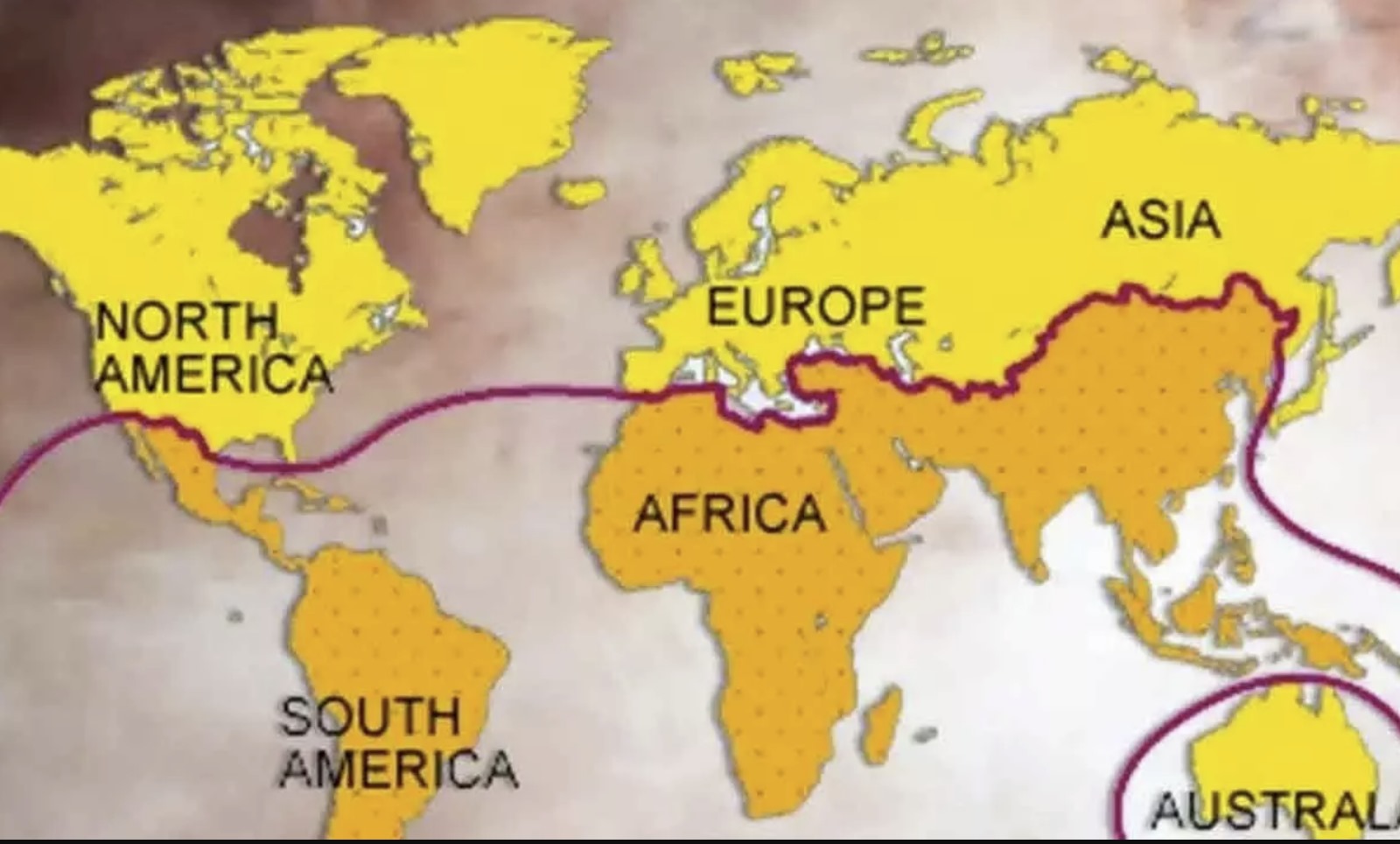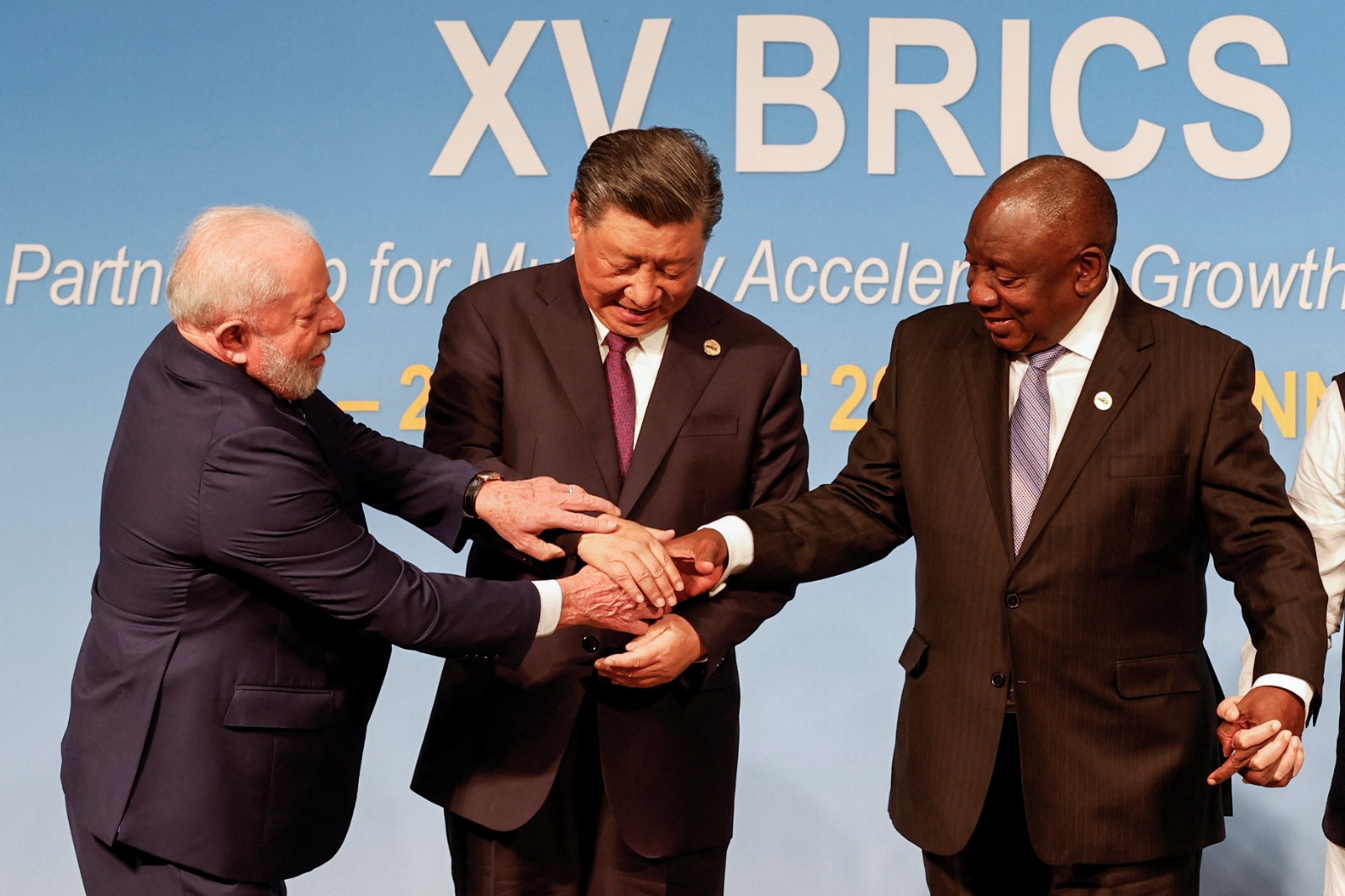For thirty years, China has been building step by step toward a tipping point in the global balance of power. A tipping point that will allow it to take over. And to impose what it calls a New World Order.

That tipping point may have come with the war in Gaza. Why?
China’s Xi Jinping has been talking for at least ten years about toppling what he calls the global hegemon, the global center of power, the United States.
China’s effort to take over as global leader showed its head nineteen years ago, in 2004, when China’s future leader Hu Jintao, visited the continent that we regarded as our private playground, South America.
Up until then, we had enforced the Monroe Doctrine, which said we would not tolerate any foreign meddling in South America. But China defied that doctrine and signed security and trade agreements with 21 South American nations.
Then, ten years ago, Xi Jinping announced his Belt and Road Initiative, a New Silk Road with high speed rail connections, super highways and a necklace of ultra-modern ports that goes clear around the world, increasing the speed of trade, and potentially increasing the speed of transport for China’s military.
The Belt and Road Initiative includes 40 ports in South America, 100 ports in Africa, at least four ports in Europe, and stakes in five ports in the United States– Miami, Houston, Long Beach, Los Angeles, and Seattle.
China recruited 155 nations to join the Belt and Road. That’s 75% of the world’s population, and half of the world’s economic output.
And China cemented the deal by giving out a trillion dollars in loans.
Meanwhile, China built the world’s biggest navy and the world’s biggest ground-based rocket force. Now it aims to double its number of nuclear warheads by 2030.
But the real move toward world dominance came with an undeclared military alliance—the Axis of Evil. The Axis of Evil straddles the globe. Its members include China, Russia, North Korea, Iran, Syria, Venezuela, Nicaragua, and Cuba.

And in 2009 the Axis of Evil spawned a little brother, the BRICS nations. The BRICS was originally just Brazil, Russia, India, China and South Africa. Its name was coined by an executive at Goldman, Sachs, who saw the BRICS as an investment opportunity.
Something crucial happened to the BRICS in August. China is a member of The Group of Seven, a coalition led by the United States. The Group of Seven has long considered the most powerful group of nations in the world.
The Group of Seven was due to have one of its summits in May. US President Joe Biden was due to be there. Along with the heads of France, Germany, England, and Japan. Everyone expected China’s president, Xi Jinping. But Xi didn’t show up.
He snubbed the Group of Seven and instead, three months later, in August, he appeared at the BRICS summit with India’s Prime Minister Narendra Modi. Thus signaling that the Group of Seven and its European powers were over and out and that coalitions led by China would take over from here.
Meanwhile, Vladimir Putin was supposed to be at the BRICS meeting, but couldn’t come. He could have been arrested in Johannesburg because the International Criminal Court has two warrants out for his arrest for war crimes. This was remarkably convenient for Xi, who was thus alone with India’s Modi. Alone in a way that implied that the new global leader was Xi, and that India supported that view.
But there’s more. At the BRICS summit, the BRICS added six new members: Iran, Saudi Arabia, the UAE, Egypt, Argentina, and Ethiopia. Thus bringing in the wealth, the oil, and the clout of the Arab Middle East.
And at that summit, India’s prime minister Narendra Modi did something crucial. He claimed that the BRICS would lead the Global South, a coalition of 134 of the least developed nations on earth, but a coalition with 85% of the world’s population and 39 percent of the world’s economic output.
Who was at Narendra Modi’s side? China’s Xi Jinping.
But there’s even more. Russia has brought seven African nations into its sphere of influence and thus into the Axis of Evil. Using its Wagner Group mercenaries.
And China now has six of its warships parked at all times in the Middle East. Including two guided missile ships.
All of this means that China now leads two alliances that between them have far more than half the humans on the globe and produce roughly half of the earth’s economic output.

Xi has been putting together a row of dominoes that would, he hoped, fall and give him world leadership.
Then, on October 6th, Xi had a stroke of luck, the Israel Hamas war. Why was this good for XI?
Because Russia and China both side with Hamas. Hamas is a proxy army of their ally in the Axis of Evil and in the BRICS, Iran. And China’s stand with Hamas will gain it tremendous world sympathy.
Which may allow China to topple its dominoes. What does China want to achieve when those dominoes finally fall? Xi Jinping wants to push America out of the top spot on the globe and take over.
And, according to the National Bureau of Asian Research, Xi wants to stamp out our democracy, our freedom of speech, and our freedom of thought. Forever.
References:
Rush Doshi, The Long Game: China’s Grand Strategy to Displace American Order, Oxford University Press, 2021
Taylor D. Beith, The Dragon’s Silver Tongue: Chinese Soft Power in the Age of Xi Jinping
Elizabeth Economy, The Third Revolution: Xi Jinping and the New Chinese State
Katie Stallard, Dancing on Bones: History and Power in China, Russia and North Korea
Thomas Orlik, China: The Bubble that Never Pops
Andrew Kennedy, The Conflicted Superpower: America’s Collaboration with China and India in Global Innovation
Philip P. Pan, Out of Mao’s Shadow: The Struggle for the Soul of a New China
Graham Allison, Destined For War: Can America and China Escape Thucydides’s Trap?
John Pomfret, The Beautiful Country and the Middle Kingdom: America and China, 1776 to the Present
Evan Osnos, Age of Ambition: Chasing Fortune, Truth, and Faith in the New China
Robert D. Kaplan, Asia’s Cauldron: The South China Sea and the End of a Stable Pacific
Lee Kuan Yew: The Grand Master’s Insights on China, the United States, and the World
https://www.nbr.org/publication/chinas-vision-for-a-new-world-order/
https://www.nytimes.com/2023/08/23/world/asia/brics-nations-new-members-expansion.html
https://www.globaltimes.cn/page/202310/1300424.shtml
https://www.dw.com/en/fact-check-russias-influence-on-africa/a-66310017
https://time.com/6301177/niger-african-support-russia/
https://www.csis.org/analysis/russia-still-progressing-africa-whats-limit
https://dialogo-americas.com/articles/chinas-network-of-ports-grows-in-latin-america/
https://www.orfonline.org/research/chinas-belt-and-road-initiative-implications-in-africa/
https://www.airuniversity.af.edu/CASI/Display/Article/3193056/pla-rocket-force-organization/
https://www.cfr.org/councilofcouncils/global-memos/brics-summit-2023-seeking-alternate-world-order
https://apnews.com/article/what-is-global-south-19fa68cf8c60061e88d69f6f2270d98b
https://www.piie.com/blogs/realtime-economics/much-global-south-ukraines-side
https://dialogo-americas.com/articles/chinas-network-of-ports-grows-in-latin-america/
https://www.orfonline.org/research/chinas-belt-and-road-initiative-implications-in-africa/
______
Howard Bloom of the Howard Bloom Institute has been called the Einstein, Newton, and Freud of the 21st century by Britain’s Channel 4 TV. One of his seven books–Global Brain—was the subject of a symposium thrown by the Office of the Secretary of Defense including representatives from the State Department, the Energy Department, DARPA, IBM, and MIT. His work has been published in The Washington Post, The Wall Street Journal, Wired, Psychology Today, and the Scientific American. He does news commentary at 1:06 am Eastern Time every Wednesday night on 545 radio stations on Coast to Coast AM. For more, see http://howardbloom.institute.
